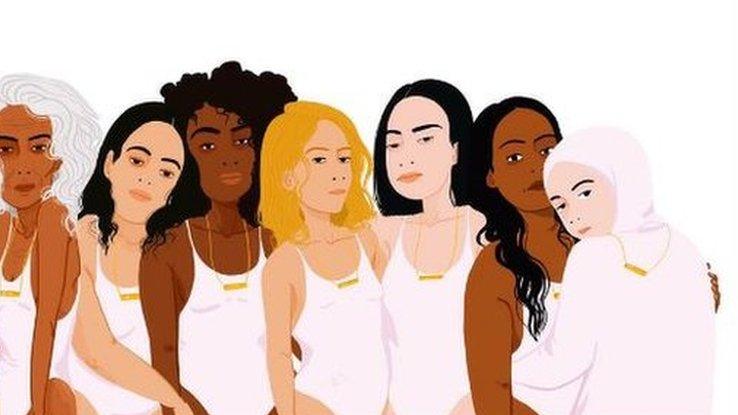Topless Marianne remark by PM Manuel Valls stirs French row
- Published
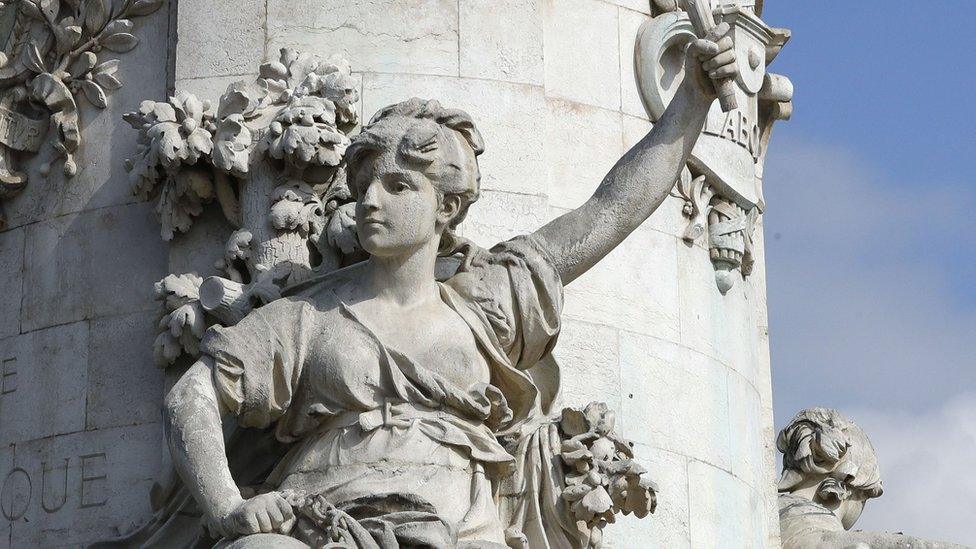
The statue of Liberty is bare-breasted at the Marianne monument in Paris
Prime Minister Manuel Valls has upset political rivals and historians by invoking the symbol of the French republic, Marianne, in the row over "burkini" beach bans.
"Her breast's exposed because she's feeding the people; she isn't wearing a veil because she's free," he said.
But opponents were quick to seize on his remarks as the race hots up ahead of next year's presidential elections.
One historian said his use of Marianne as a feminist symbol was "moronic".
Mathilde Larrere, an expert on the French Revolution, said Marianne was an allegory and the use of her naked breast "just an artistic code" and nothing to do with femininity.
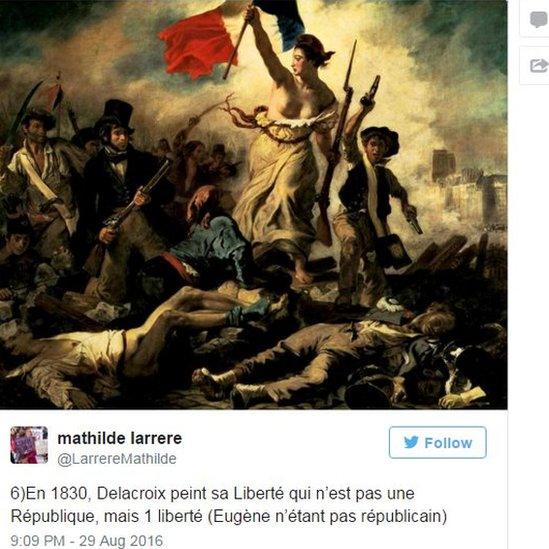
Mathilde Larrere said Delacroix's painting was of Liberty, and that the painter wasn't himself a Republican
The issue of the full-body swimsuit, known as a "burkini", has overshadowed French politics in the wake of the militant attack on Nice in July. As campaigning kicks off for next year's presidential election, Republican candidate Nicolas Sarkozy has called for the swimsuit to be banned.
Mr Valls last week defended the right of local mayors to impose beach bans, although France's top administrative court has said the bans breach fundamental freedoms.
And, addressing a Socialist Party rally attended by several ministerial colleagues, he said the French had to reclaim patriotism in the face of Islamist totalitarianism, insisting there should be no compromise on the role of women.
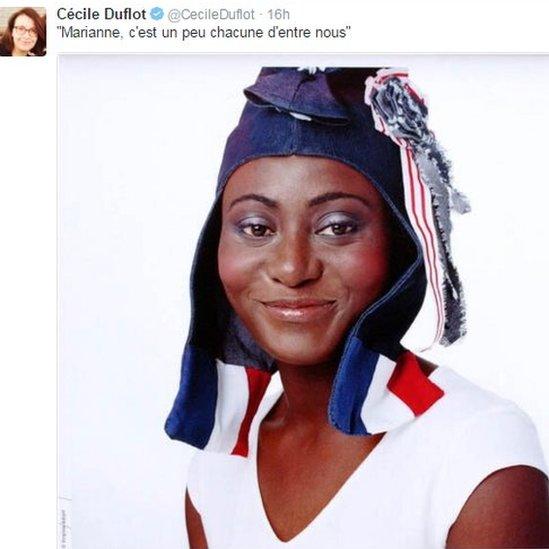
Ecologist Cecile Duflot said Marianne was a "little part of all of us"
But when he invoked Marianne, Social Affairs Minister Marisol Touraine and Education Minister Najat Vallaud-Belkacem did not applaud.
Green politician Cecile Duflot said the prime minister's remark was comical because Marianne's head was covered with a Phrygian cap, another symbol of the French Revolution. She shared several images on social media from a National Assembly exhibition, including one describing Marianne as "a little part of all of us".
Mathilde Larrere set out in a series of tweets, external why the prime minister had been wrong to invoke Marianne to support his argument.
The renowned Eugene Delacroix painting depicted Liberty, she said, and not a republic.
During the 19th Century there were two competing images of Marianne that mirrored two differing concepts of the republic, she said. A wise, fully clothed, unarmed Marianne and a Marianne with a Phrygian bonnet, sword and exposed breast.
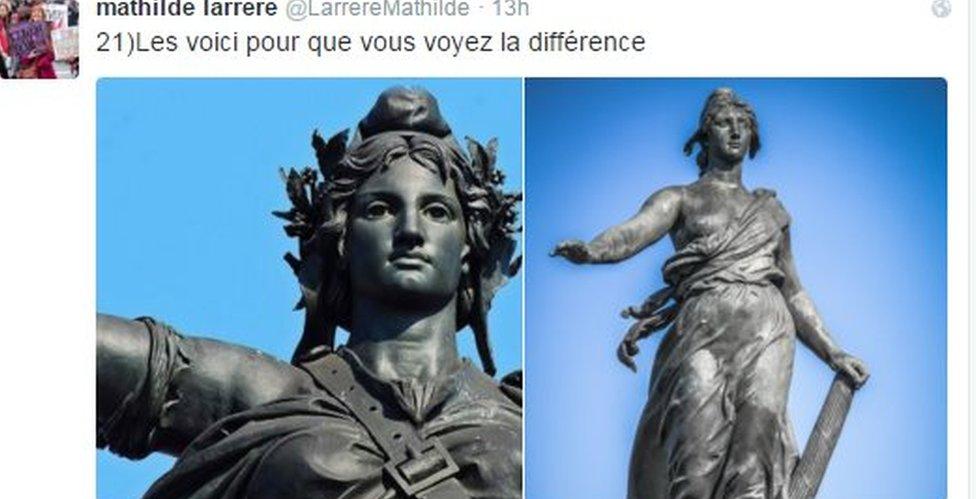
The more clothed version of Marianne (L) was favoured by conservative republicans
Radical revolutionaries would espouse the naked Marianne and more conservative republicans the clothed figure, Mathilde Larrere explained. And none of the men of that period had imagined giving women civil powers, freedom or the right to vote.
Le Figaro political correspondent Sophie de Ravinel said that Manuel Valls had departed from his text to make the remarks, and she pointed out that while Marianne's breast was exposed, her head was covered too.
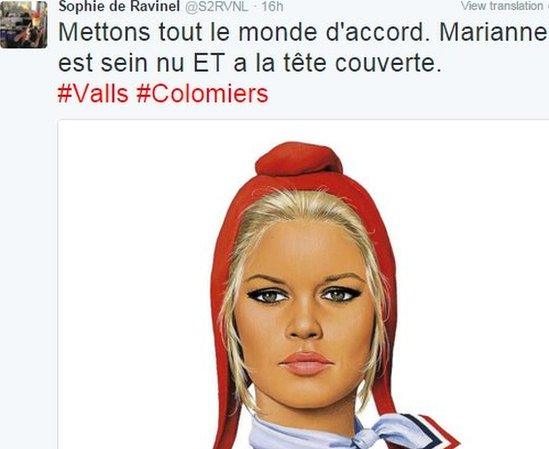
A Figaro correspondent said Marianne's breast was exposed but her head was covered too

Who is Marianne?
Marianne, in the words of the French government, external, is the embodiment of the French Republic and over the years has become the most widely shared representation of the motherland. The name is thought to be an elision of Marie-Anne, a common French name in the 18th Century.
Her first appearance was in 1792 during the French Revolution, donning a Phrygian cap of the type worn by freed Greek and Roman slaves, a suitable emblem for the revolutionaries.
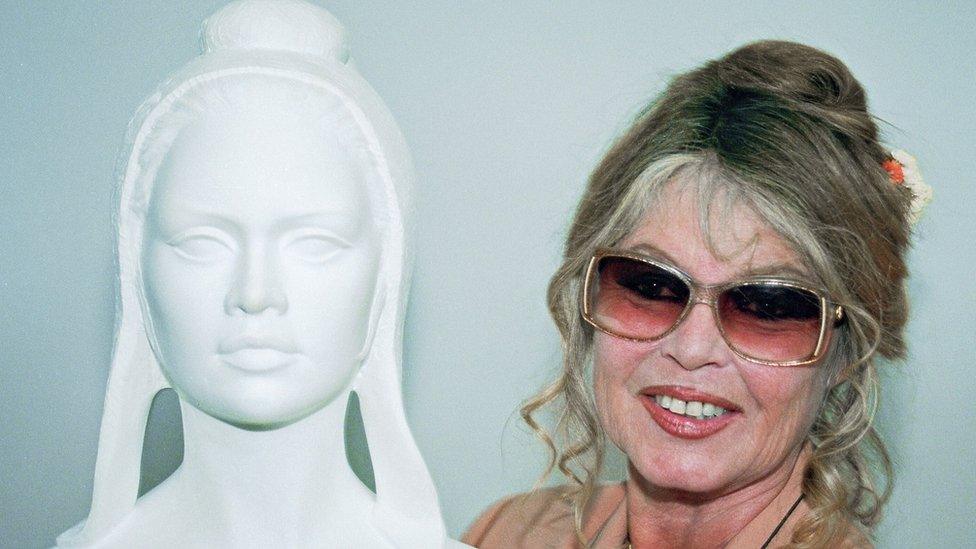
Brigitte Bardot was among French women chosen to model for busts of Marianne
But when the Republic fell in 1799, the figure of Marianne became more a symbol of liberty than revolution, although her name was little used.
By 1848, and France's Second Republic, a gentler, more maternal figure had emerged, chiming with more conservative times. A competition was held and the more revolutionary image of Marianne was left to opposition groups.
It was only with the fall of Napoleon III in 1870 that the bare-breasted woman in a bonnet returned, soon to become a symbol synonymous with France's Third Republic.
In recent decades several leading French women have been used to symbolise her on busts and on stamps, including Brigitte Bardot, Catherine Deneuve, Mireille Mathieu and Laetitia Casta.
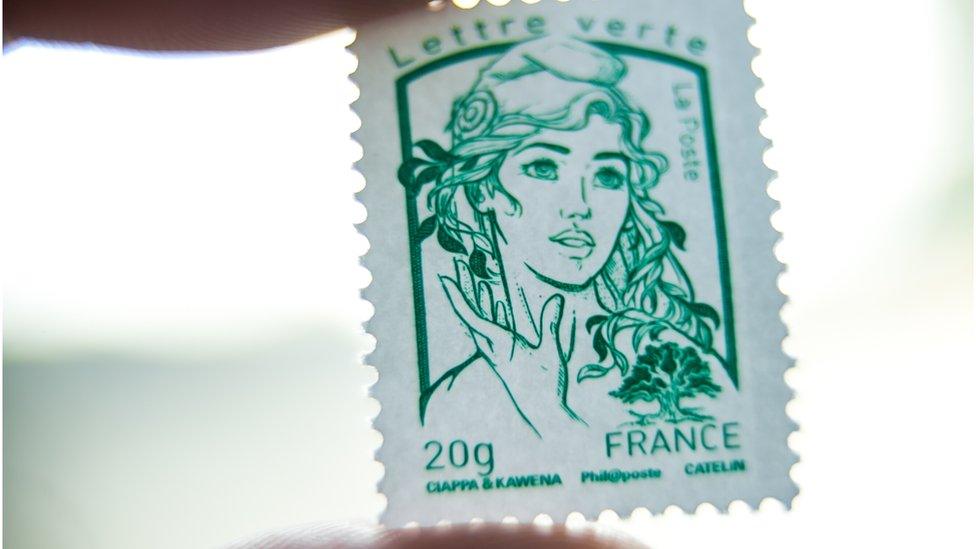
Reports suggested a topless protester inspired the face of Marianne on France's national stamps
More recently, there was some controversy over the reported use of a topless Ukrainian protester who was said to have inspired the face on France's national stamps.
Inna Shevchenko founded the bare-breasted movement Femen and was granted asylum in France in 2013.
- Published26 August 2016
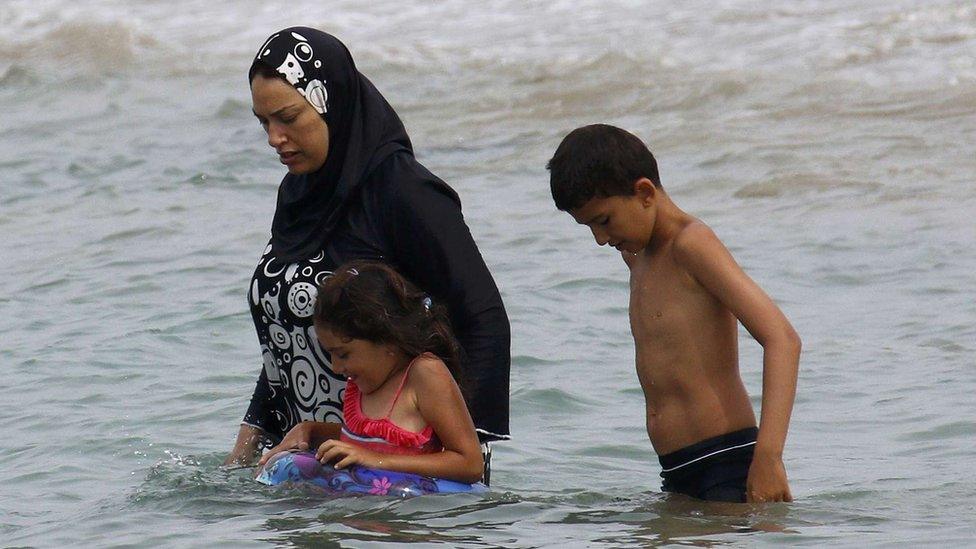
- Published15 August 2016
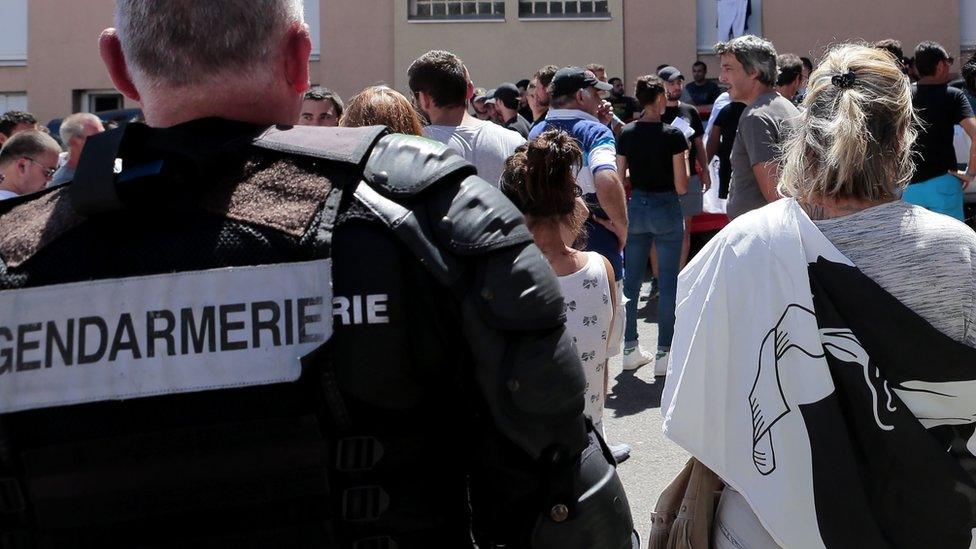
- Published17 August 2016
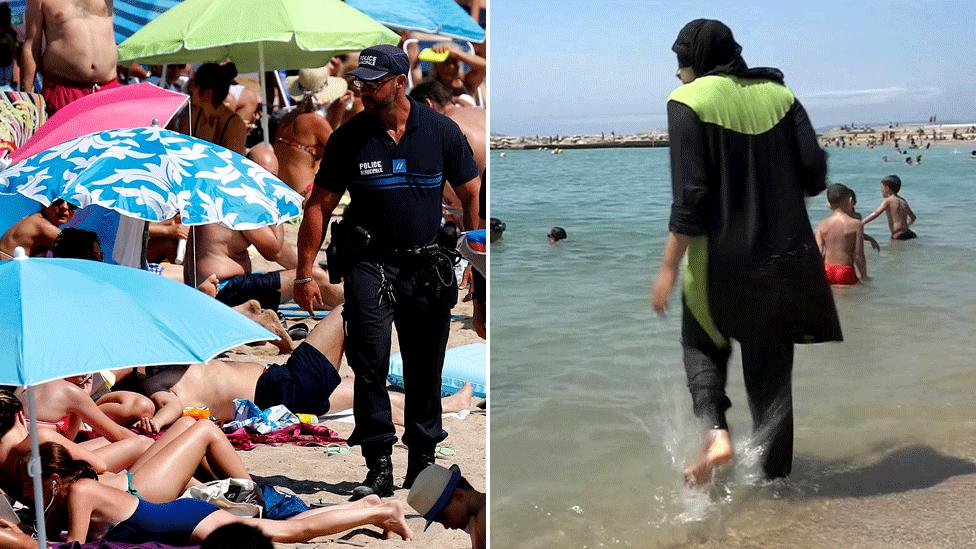
- Published24 August 2016

- Published13 August 2016
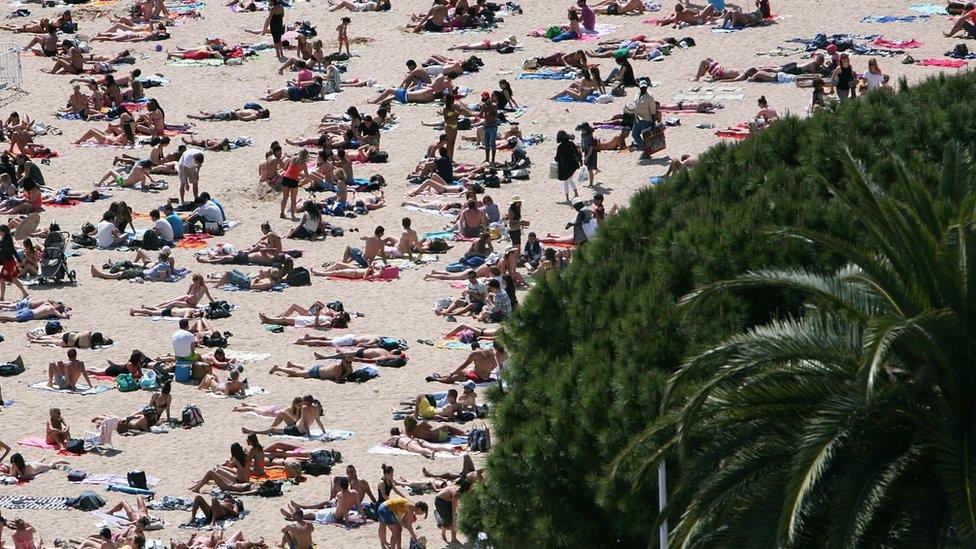
- Published24 August 2016
